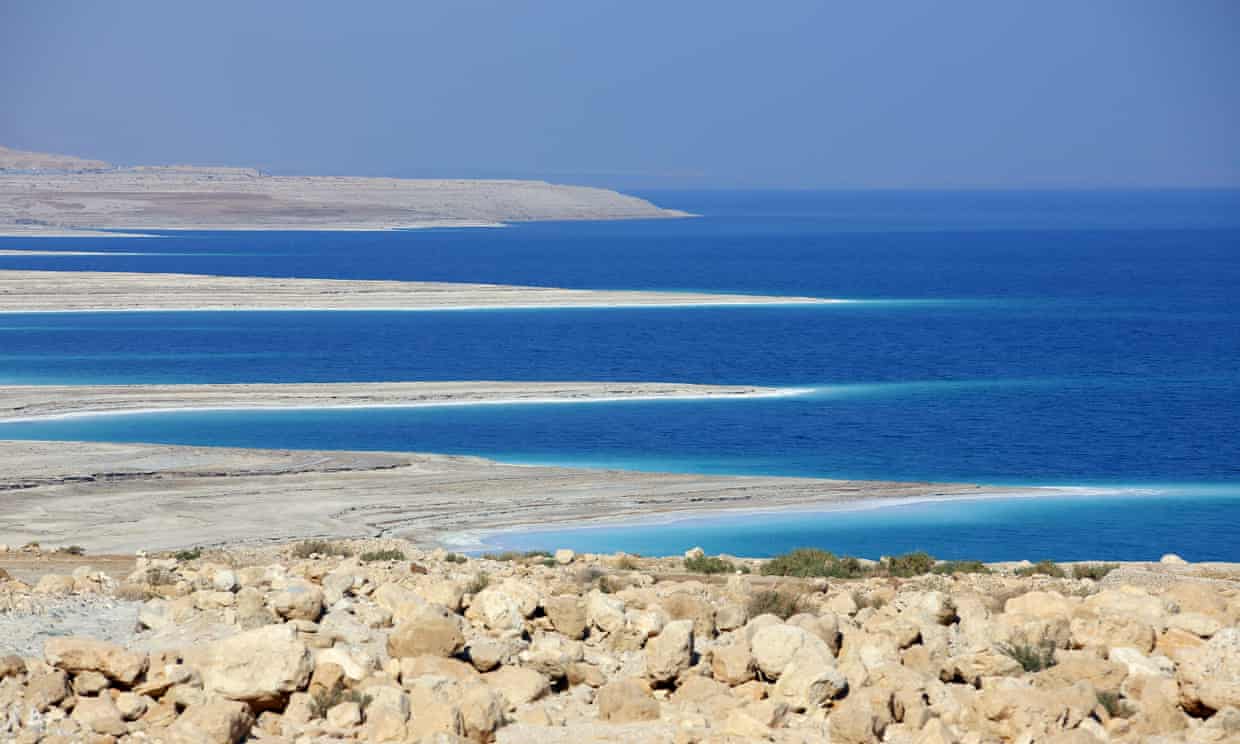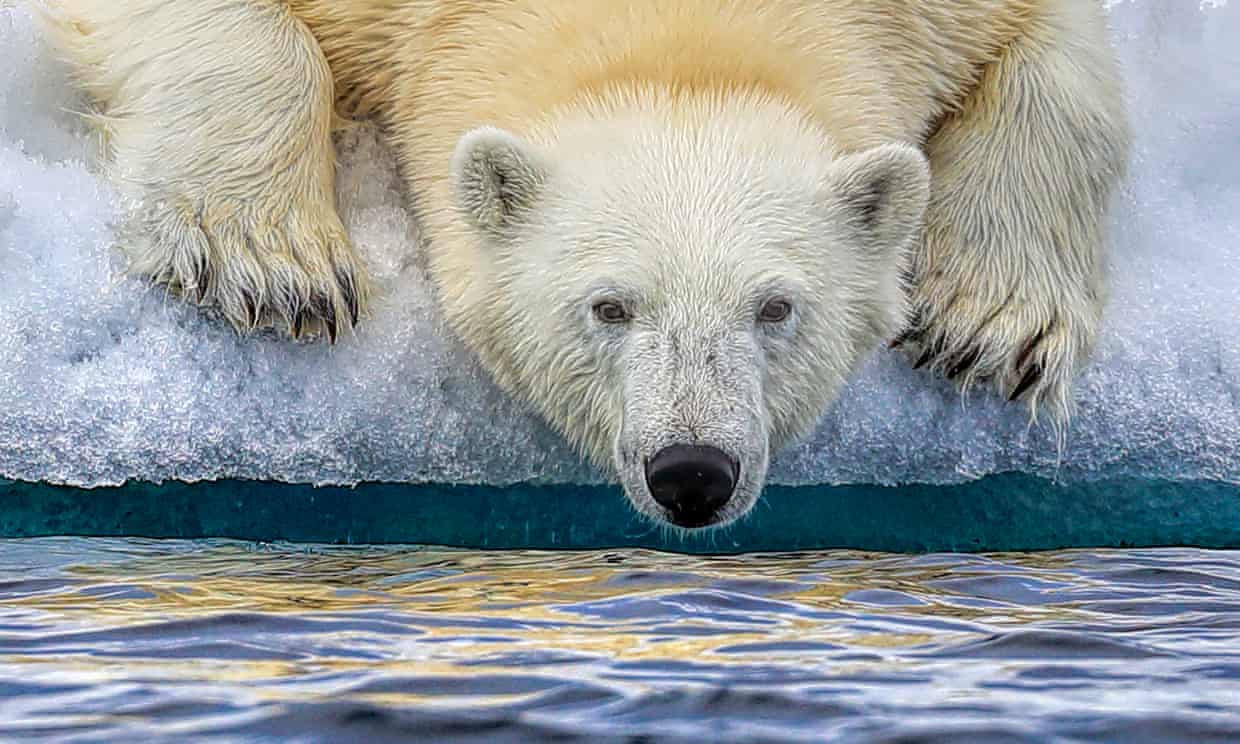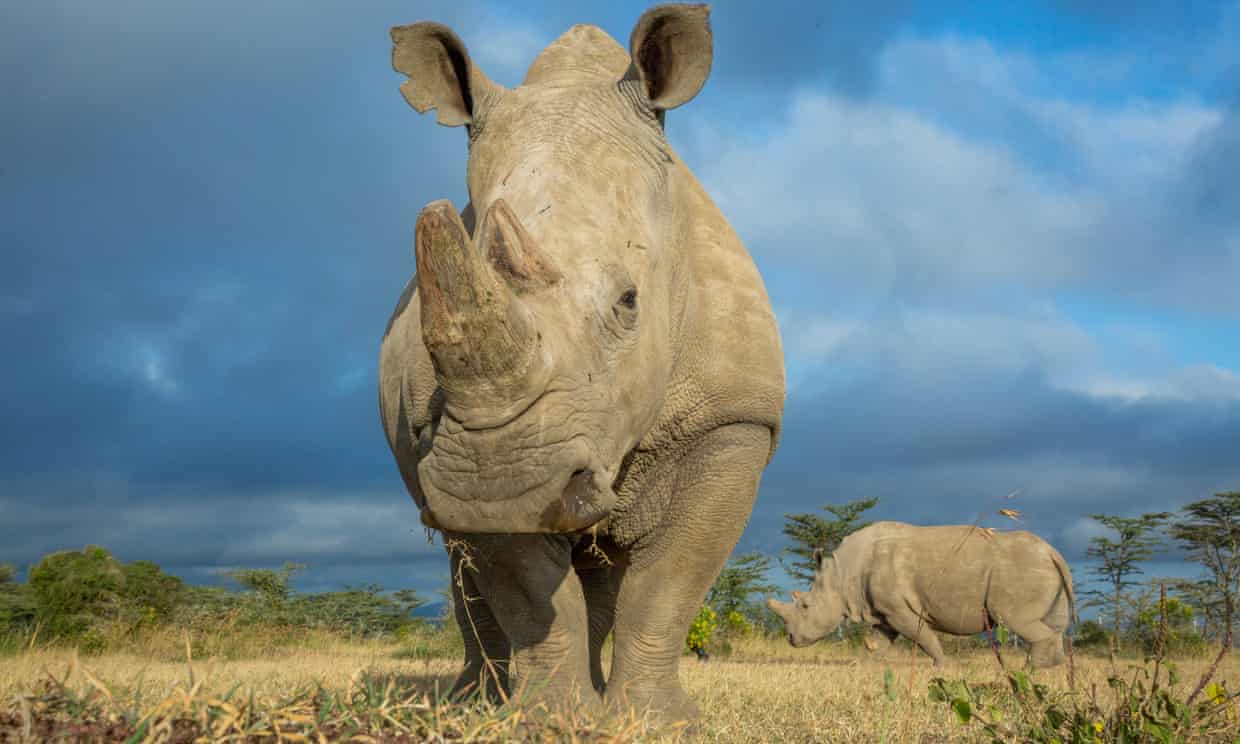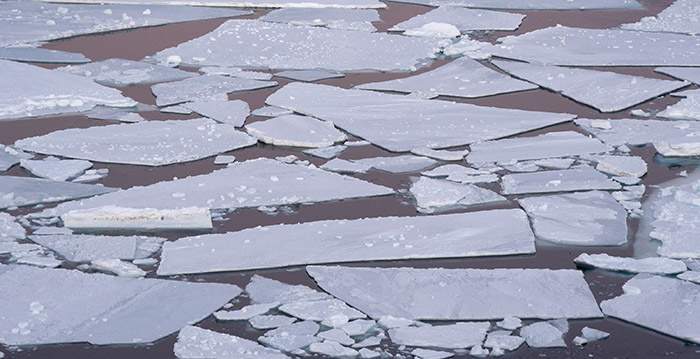 Far below the Dead Sea, between Israel, Jordan and Palestinian territories, researchers have found evidence of a drought that has no precedent in human experience.
Far below the Dead Sea, between Israel, Jordan and Palestinian territories, researchers have found evidence of a drought that has no precedent in human experience.
From depths of 300 metres below the landlocked basin, drillers brought to the surface a core that contained 30 metres of thick, crystalline salt: evidence that 120,000 years ago, and again about 10,000 years ago, rainfall had been only about one fifth of modern levels.
The cause in each case would have been entirely natural. But in the region where human civilisation began, already in the grip of its worst drought for 900 years, it is a reminder of how bad things could get and a guide to how much worse human-induced climate change could become.
Dead Sea evidence of unprecedented drought is warning for future
Arctic sea ice could disappear even if world achieves climate target
 Arctic sea ice could vanish in summers this century even if governments achieve a core target for limiting global warming set by almost 200 countries, scientists have said.
Arctic sea ice could vanish in summers this century even if governments achieve a core target for limiting global warming set by almost 200 countries, scientists have said.
The ice has been shrinking steadily in recent decades, damaging the livelihoods of indigenous people and wildlife, such as polar bears, while opening the region to more shipping and oil and gas exploration.
Antarctica hits record high temperature at balmy 63.5°F
An Argentine research base near the northern tip of the Antarctic peninsula has set a heat record at a balmy 63.5° Fahrenheit (17.5 degrees Celsius), the U.N. weather agency said on Wednesday.
The Experanza base set the high on March 24, 2015, the World Meteorological Organization (WMO) said after reviewing data around Antarctica to set benchmarks to help track future global warming and natural variations.
Trump executive order scraps EPA water rule
President Trump signed an executive order Tuesday scrapping a controversial Environmental Protection Agency rule that expanded the agency's jurisdiction over the nation's waterways during the second term of former President Obama.
The regulation, known as the Waters of the U.S. rule, broadened the definition of the type of water body that would fall under EPA's formidable clean water enforcement powers, making everything from streams to ditches and watering holes subject to the EPA's and Army Corps of Engineers' oversight.
Biologists say half of all species could be extinct by end of century
 One in five species on Earth now faces extinction, and that will rise to 50% by the end of the century unless urgent action is taken. That is the stark view of the world’s leading biologists, ecologists and economists who will gather on Monday to determine the social and economic changes needed to save the planet’s biosphere.
One in five species on Earth now faces extinction, and that will rise to 50% by the end of the century unless urgent action is taken. That is the stark view of the world’s leading biologists, ecologists and economists who will gather on Monday to determine the social and economic changes needed to save the planet’s biosphere.
“The living fabric of the world is slipping through our fingers without our showing much sign of caring,” say the organisers of the Biological Extinction conference held at the Vatican this week.
DuPont settles lawsuits over leak of chemical used to make Teflon
DuPont and Chemours Co have agreed to pay $671 million in cash to settle thousands of lawsuits involving a leak of a toxic chemical used to make Teflon, the companies said on Monday.
Shares of Chemours jumped 13 percent. The company said it would pay half of the settlement, although liability for litigation connected with the chemical was passed onto it when DuPont spun it off in 2015.
In addition, Jefferies analyst Alexander Laurence said the liability was $300 million below Wall Street estimates, and DuPont shares rose 1 percent.
"The facts around climate change are undeniable. It’s happening."
 There's a glacier in Antarctica so immense that, if it melted, would raise sea levels globally by 3.5 metres.
There's a glacier in Antarctica so immense that, if it melted, would raise sea levels globally by 3.5 metres.
It's melting. Right now.
"The facts around climate change are undeniable. It's happening," Australian glaciologist Ben Galton-Fenzi told The Huffington Post Australia. "The research we do now isn't about trying to convince ourselves it's real, because it's irrefutable. What we're trying to do is understand what the response time of the system is going to be into the future, so we can adapt to it."
The Totten glacier is the biggest in east Antarctica. The glacier itself is around 120 kilometres long, 30 kilometres wide and drains some 538,000 square kilometres of the continent. That's an area bigger than California. The ice is kilometres thick, but it's melting at 70 metres a year in some spots. A study released in December reported warmer water was melting the Totten ice from below.
More Articles...
Page 16 of 201

 Environmental Glance
Environmental Glance






























